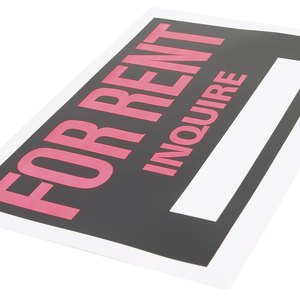
There are many reasons that a landlord can give to break a lease legally, but wanting to move in often isn't one of them. Landlord and tenant law is mandated by individual states, which have different rules for what the landlord is allowed to do to a tenant. Landlords in most states have to wait out a tenant's lease before moving in.
Tips
Unless there is a special provision in your rental agreement that allows for lease termination when a landlord or his family want to move back in, the landlord will have to wait until the lease expires before evicting you.
Know Your State's Tenant Rights
Each state has its own laws regarding the rental of real estate. These laws dictate the rights of landlords and tenants. They outline how much notice a landlord must give to the tenant if she wants to make repairs, inspect the premises or end a tenancy. They also list the situations in which a landlord may evict tenants and how the eviction process works. If a tenant does nothing to violate the terms of a lease, he is protected from eviction and the landlord must honor the lease.
Month-to-Month Tenancies
In a month-to-month rental, there is no long-term lease or contract and the landlord has much more flexibility to evict tenants. As long as the landlord gives notice in the proper format and for at least the minimum amount of time, he can evict a tenant for any reason or for no reason. The minimum notification period is 30 to 60 days in most states. A landlord is not required to renew a lease, just to honor the existing one.
Locked-In Leases
When a tenant has signed a long-term lease, the tenant and the landlord must abide by its terms. In almost no situation can a landlord break an existing lease to move in or to have family members move in. The landlord must wait until near the end of the lease and then serve legal notice of eviction for the end date of the lease. If the landlord waits until it is too late to serve notice for the required minimum time, she must allow the tenant to stay until the notice period is up. For example, if a landlord serves a tenant notice on Dec. 15 that the lease ending Dec. 31 will not be renewed, she must give the tenant the full notice period to move out. In a 60-day state, this means the tenant can stay until Feb. 15.
Other Reasons to Break a Lease
In every state, the landlord can break a lease if the tenant violates one of the terms, as long as the terms are in line with state law. In most states, a landlord can evict a tenant for nonpayment of rent, willful damage to the property, keeping other tenants from peaceful occupation of their units and breaches of the contract such as having pets if the lease does not allow it. In these situations, state law dictates what notice the landlord must give and the process for fixing the problems or evicting the tenants.
References
- NOLO: Can Our Landlord Kick Us Out So a Family Member Can Move In?
- Bay Management Group: How Can a Catonsville Landlord Break a Tenant’s Lease?
- NOLO: Terminating a Lease or Rental Agreement FAQ
- Cornell Law School Legal Information Institute. "Tenancy at Sufferance." Accessed Sept. 11, 2020.
- New York State Unified Court System. "Tenant Questions & Answers in Holdover Eviction Cases." Accessed Sept. 11, 2020.
Writer Bio
Angie Mohr is a syndicated finance columnist who has been writing professionally since 1987. She is the author of the bestselling "Numbers 101 for Small Business" books and "Piggy Banks to Paychecks: Helping Kids Understand the Value of a Dollar." She is a chartered accountant, certified management accountant and certified public accountant with a Bachelor of Arts in economics from Wilfrid Laurier University.

